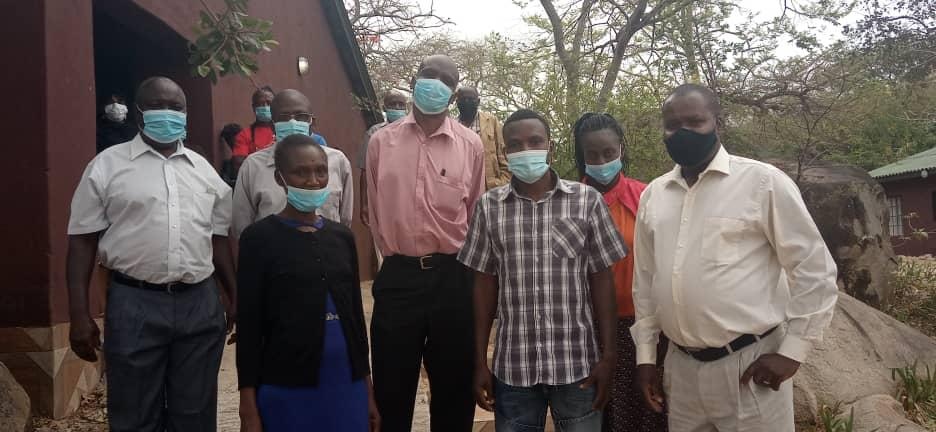16 September, 2021After years of negotiating for a merger, three IndustriALL Global Union affiliates organizing in the textile, garment, shoe, and leather sectors held their inaugural congress in Harare on 12 September to form the Clothing, Leather and Textile Workers’ Federation (CLTWF).
The three unions that merged – the National Union of the Clothing Industry (NUCI), the Zimbabwe Leather, Shoe and Allied Workers Union (ZLSAWU), and the Zimbabwe Textile Workers’ Union (ZTWU) – agreed to work collectively in strengthening recruitment and organizing towards building a stronger union. As part of its plans to be inclusive, the CLTWF also formed youth and women committees during the launch.
However, the CLTWF is confronted by many of the challenges that the sector is facing globally. Further, in Zimbabwe the challenges are worsened by an economic crisis that has seen factories close and workers retrenched while wage theft is spreading.
The working conditions in the sector are precarious. In some instances, working days have been reduced and wages are low with some workers saying they earn $8 000 Zimbabwe Dollars (US$94 on the official rate and US$57 on the parallel market). The Consumer Council of Zimbabwe says a family of six needs over $40 000 Zimbabwe Dollars per month, and this means the current wages are not enough for workers to pay for their basic needs.
According to reports, the decline in manufacturing industries caused by the country’s deindustrialization, weakened the cotton-to-clothes value chain and leather and shoe manufacturing. Further, the unstable local currency, foreign currency shortages, high inflation, and huge imports of second-hand and cheap clothing is adversely affecting the sector. Economic policies are also failing to revive the textile and garment industries.
Joseph Tanyanyiwa, the newly elected general secretary of CLTWF says:
“Although the merger is long overdue, it is an opportunity to plan collectively and shape the future of our sectors by fighting for workers’ rights, living wages, and organizing more members. We would also like to thank IndustriALL, national affiliates, and unions in Sub Saharan Africa for supporting the merger and for giving us support in developing our five-year strategic plan.”
“We welcome the merger as it brings unity and strength to the union. This is important in building union power in the textile, garment, shoe and leather sectors in Zimbabwe considering the challenges that have been brought by the Covid-19 pandemic and the economic crisis,”
says Paule France Ndessomin, IndustriALL regional secretary for Sub Saharan Africa.


